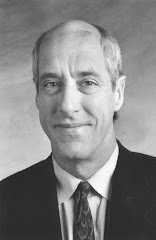MARCH 2, 2009 POLITICS / JOHN MAGINNIS
A very positive 60 Minutes profile of Gov. Bobby Jindal on Sunday took some of the sting out of his nationally televized belly flop last week. Enough has been said about his woeful response to President Obama's address to Congress, except to ask: what is he going to do about it?
Even supporters concede that Jindal bombed on style points, from the empty setting to his sing-song delivery. Opinion on the content of his remarks is divided along partisan, philosophical lines, but such was his task, to speak for the Republican party.
His argument, however, that government should limit its role in face of catastrophes, natural or financial, hardly squares with his state's receiving massive federal aid after the hurricanes and still seeking more--a point that post-speech commentators jumped on.
His talk improved as he went along, but it was too late by then. Beyond delivery and content issues, he made the strategic mistake of trying to do too much in one speech, none of it very well.
His opening biographical sketch of his family's immigrant experience in pursuit of the American dream is likely how he planned to begin his address to the Republican National Convention in September, had Hurricane Gustav not kept him at home. Having missed that opportunity to introduce himself to the nation, he should not have tried to shoehorn it into his response to the president.
He would have done better to lead off with his statement, which came midway, that Republicans, when they were in power, strayed from their small-government principles and thus deserved to be turned out by voters. By starting with that refreshingly frank assessment, which Republican leaders have failed to make, he would have turned heads that he instead turned off. Then he could have made the case that the Democrats are compounding past errors while Republicans are out to win the country's trust again--starting with a better directed alternative stimulus plan.
Critics still would have panned his delivery, but they also would have credited him for candor and for laying out a path for his party's future.
Coulda, woulda, shoulda, but now what?
Some would suggest he make light of the debacle and put it behind him, much like then-Gov. Bill Clinton did after his much-ridiculed bombast to the Democratic National Convention in 1988, four years before he was nominated. But there is a big difference. Clinton was a gifted speaker who just didn't know when to shut up. He struggled with brevity throughout his career, but managed to curb his verbiage and turn his tongue into a highly effective political tool.
Less talented an orator, Jindal needs to manage his weakness so that it doesn't bite him again. He does quite well in some settings, such as town hall meetings and rooms full of wealthy donors. He also thrives on the give-and-take of TV news interviews.
Yet the challenge of a formal speech eludes him, which he admitted at a Monday press conference. "I am not the best speaker," he said. Nor does it bother him to be called boring, or worse: "It's better to be compared to Mr. Rodgers than to some others."
Excelling at speechmaking apparently is not such a big deal to him, and he is not alone on that point. John McCain, who also struggled on big stages, might be president but for the economic meltdown. George W. Bush was elected twice, despite being borderline inarticulate, and now commands six-figure speaking fees. But the war hero and former president's son had advantages that Obama and Clinton, not to mention Reagan, made up for with their command of language.
The governor said he won't hire a speechwriter or even a part-time speech coach. Fine, but if he doesn't care to make his talks better, he should consider cutting them shorter. Or perhaps he failed to notice that he has been numbing audiences around Louisiana with stemwinders that are long on facts, short on vision and missing focus and feeling.
Gov. Jindal has his own compensating talents, mainly the mind to back up his voice. Yet while what one says counts for more than how one says it, an effective leader combines the two in order to inspire and to move people, and not toward the exits.
Thursday, March 5, 2009
Subscribe to:
Post Comments (Atom)

No comments:
Post a Comment